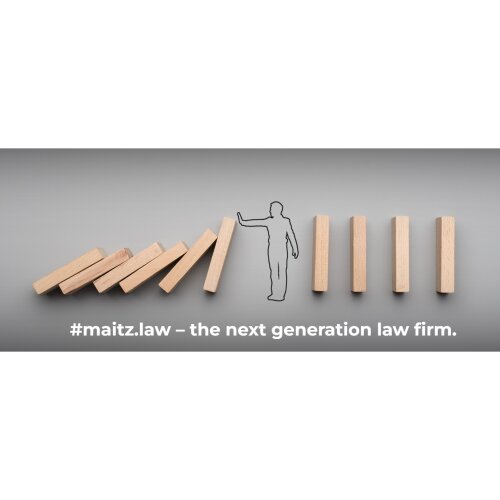Best Inheritance Law Lawyers in Ruggell
Share your needs with us, get contacted by law firms.
Free. Takes 2 min.
List of the best lawyers in Ruggell, Liechtenstein
1. About Inheritance Law in Ruggell, Liechtenstein
Inheritance law in Liechtenstein is primarily governed by the Liechtenstein Civil Code, known as the Liechtensteinisches Allgemeines Bürgerliches Gesetzbuch (ABGB). This code covers bequests, succession orders, and the rules for distributing assets after a person dies. In Ruggell, as in other municipalities, the same national rules apply, though local probate practices may involve the court and local notaries.
The system emphasizes personal rights for close family through reserved shares (Pflichtteil) and allows testamentary freedom within statutory limits. Wills and inheritance contracts are commonly prepared with a solicitor or Notar, which helps ensure validity and reduces disputes. If you own property or assets in Liechtenstein, understanding how ABGB sections on Erbrecht interact with real estate and banking arrangements is essential.
Source: e-justice.europa.eu provides overview and cross-border context for Liechtenstein inheritance matters in the European justice framework. https://e-justice.europa.eu
In practice, residents of Ruggell often face issues around international estates, cross-border assets, and ensuring that the distribution aligns with both local law and any foreign regulations. Local counsel can help coordinate wills, Erbverträge (inheritance contracts), and the registration of assets in Liechtenstein’s land and tax registries. This guide offers a practical starting point for those navigating Inheritance Law in Ruggell.
2. Why You May Need a Lawyer
Here are four to six concrete, real-world scenarios where legal help is often essential for matters in Ruggell and Liechtenstein in general.
- A will or Erbvertrag needs validation after the testator dies in Ruggell, and the heirs disagree about the interpretation of a clause.
- An estate includes Liechtenstein real estate that must be transferred through the land registry (Grundbuch) and requires careful coordination with a Notar and local authorities.
- There is a dispute about the Pflichtteil, where a child or spouse claims a portion they believe is rightfully theirs under ABGB provisions.
- Cross-border assets exist, such as a spouse living abroad or a foreign heir, requiring coordination of Liechtenstein law with foreign succession rules.
- The estate includes complicated asset types (trusts, companies, or shares) that need careful valuation and orderly distribution under Erbrecht rules.
- An heir challenges the validity of a will or an inheritance contract because of alleged coercion, fraud, or lack of capacity.
In each case, a solicitor or legal counsel with Liechtenstein experience can advise on procedural steps, required documents, and timelines. They can also act as a liaison with Notare, the courts, and financial institutions to minimize delays and ensure compliance with ABGB requirements.
3. Local Laws Overview
Liechtenstein uses a unified civil law framework for inheritance, with key provisions embedded in the civil code and related regulatory instruments. The following are commonly referenced instruments when discussing Inheritance Law in Ruggell:
- Liechtensteinisches Allgemeines Bürgerliches Gesetzbuch (ABGB) - The main civil code governing general civil matters, including Erbrecht, testamentary dispositions, intestate succession, and Pflichtteil rights.
- Notariatsgesetz / Notariatsordnung - Regulations governing notaries who administer wills, inheritance contracts, and attestations in Liechtenstein, often used in the preparation and execution of estate documents.
- Erbverträge and Vermächtnis mechanisms - Provisions within ABGB and related practice guidelines for inheritance agreements and specific bequests, commonly used in Liechtenstein to structure long-term succession plans.
Recent changes emphasize cross-border caution and practical administration, reflecting Liechtenstein's close financial and personal ties with neighboring regions. For cross-border matters, guidance often intersects with European justice resources to ensure consistency across jurisdictions.
Source: e-justice.europa.eu provides cross-border inheritance guidance applicable to Liechtenstein within the European framework. https://e-justice.europa.eu
Practical note for residents of Ruggell: when dealing with real property, banking arrangements, or business assets, you will frequently interact with a Notar and local courts. Confirming that a will or Erbvertrag aligns with ABGB before death can prevent protracted disputes in probate.
4. Frequently Asked Questions
What is the main source of Liechtenstein inheritance law?
The Liechtenstein Civil Code (ABGB) governs inheritance rules, including wills and succession rights.
How do I validate a will in Liechtenstein?
Consult a local solicitor or Notar who can prepare or witness a will and submit it to the competent court for probate if required.
When does a Pflichtteil apply to heirs?
The Pflichtteil protects certain close heirs with a reserved portion of the estate under ABGB, even if the deceased left a will otherwise.
Where should I register ownership of inherited property in Liechtenstein?
Property is registered in the Liechtenstein Grundbuch (land registry) with the help of a Notar and relevant authorities.
Why might I need an Erbvertrag instead of a will?
An Erbvertrag provides a binding agreement among potential heirs, reducing later disputes and clarifying succession intentions.
Can cross-border assets complicate Liechtenstein inheritance?
Yes, international assets require coordination with cross-border inheritance rules and possibly foreign courts or registries.
Should I involve a Notar early in estate planning?
Yes, a Notar can ensure validity of documents, proper execution, and smoother probate if needed later.
Do I need to pay taxes on inheritance in Liechtenstein?
Liechtenstein has specific tax rules, and a lawyer can explain how, if at all, inheritance tax or duties apply to your case.
Is it possible to challenge a will in Liechtenstein?
Yes, if there are grounds such as coercion, fraud, or lack of testamentary capacity, a challenge can be raised in court.
What documents are typically required for probate?
Common documents include the death certificate, will or Erbvertrag, proof of heirs, and asset inventories.
How long does probate or estate administration usually take?
Timelines vary, but routine probate in Liechtenstein can take several months to a year depending on assets and disputes.
5. Additional Resources
- e-justice.europa.eu - European Commission portal with cross-border inheritance guidance relevant to Liechtenstein; includes practical steps and procedural outlines for handling cross-border estates. https://e-justice.europa.eu
- Central Intelligence Agency (CIA) World Factbook - Provides an overview of Liechtenstein’s legal system and governance context, useful for understanding how civil law frameworks operate in practice. https://www.cia.gov/the-world-factbook/countries/liechtenstein/
- United Nations Treaty Collection - Resource for international instruments and cross-border private law considerations that may touch on succession matters among jurisdictions. https://treaties.un.org
6. Next Steps
- Clarify your goals and collect key documents such as death certificates, existing wills, Erbverträge, and asset lists. Gather property deeds and bank statements relevant to Liechtenstein assets.
- Identify a Liechtenstein-licensed solicitor or Notar with inheritance experience in Ruggell or nearby areas (Vaduz, Schaan). Request a short, no-obligation consultation to discuss your situation.
- Request confirmation of the applicable law and whether a will or Erbvertrag is most appropriate for your case. Ask about cross-border implications if there are foreign assets.
- Prepare a practical plan with timelines for probate, asset valuation, and distributions. Ask the lawyer to outline required documents and filing steps.
- Obtain a clear estimate of costs, including attorney fees, Notary fees, and court costs. Request a written retainer agreement before proceeding.
- Submit the initial documents and appoint the attorney as your liaison with Notaries and the probate court. Set milestones for document submission and follow-ups.
- Review and approve the final distribution plan with your lawyer, ensuring all heirs understand their rights and obligations. Confirm post- probate steps for property transfers.
Lawzana helps you find the best lawyers and law firms in Ruggell through a curated and pre-screened list of qualified legal professionals. Our platform offers rankings and detailed profiles of attorneys and law firms, allowing you to compare based on practice areas, including Inheritance Law, experience, and client feedback.
Each profile includes a description of the firm's areas of practice, client reviews, team members and partners, year of establishment, spoken languages, office locations, contact information, social media presence, and any published articles or resources. Most firms on our platform speak English and are experienced in both local and international legal matters.
Get a quote from top-rated law firms in Ruggell, Liechtenstein — quickly, securely, and without unnecessary hassle.
Disclaimer:
The information provided on this page is for general informational purposes only and does not constitute legal advice. While we strive to ensure the accuracy and relevance of the content, legal information may change over time, and interpretations of the law can vary. You should always consult with a qualified legal professional for advice specific to your situation.
We disclaim all liability for actions taken or not taken based on the content of this page. If you believe any information is incorrect or outdated, please contact us, and we will review and update it where appropriate.









